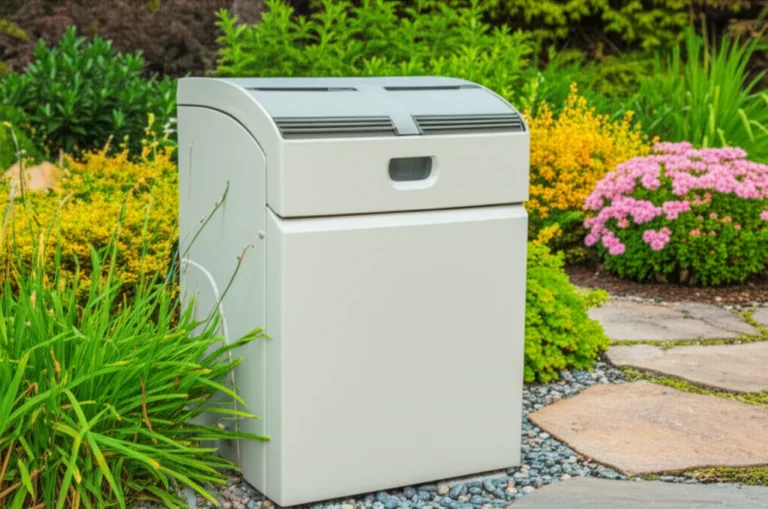Support our educational content for free when you purchase through links on our site. Learn more
Can You Make Your Garage Door Opener Quieter? 7 Proven Fixes! 🤫 (2025)
Picture this: It’s late at night, you’re sneaking home after a long day, and as you press the garage door opener, a loud clatter echoes through the house, waking everyone up—including the dog. Sound familiar? You’re not alone! Many homeowners struggle with noisy garage door openers that disrupt peace and quiet. But here’s the good news: you can absolutely make your garage door opener quieter—and we’ve got 7 proven fixes that will turn that noisy beast into a whisper-quiet helper.
In this comprehensive guide, we’ll dive deep into why garage door openers get noisy, how to diagnose different sounds, and step-by-step solutions from simple lubrication hacks to upgrading to ultra-quiet models like the Chamberlain B550. Plus, we’ll reveal insider tips on soundproofing your garage space itself. Ready to reclaim your quiet sanctuary? Let’s get started!
Key Takeaways
- Regular maintenance like lubrication and tightening loose hardware is the easiest and most effective way to reduce garage door noise.
- Upgrading to belt drive or direct drive openers (e.g., Chamberlain B550, LiftMaster 8550WLB) can dramatically cut down noise levels.
- Different noises mean different problems—from squeaks signaling dry rollers to banging caused by loose springs.
- Soundproofing your garage walls and ceiling adds an extra layer of noise reduction beyond the opener itself.
- DIY fixes are great, but know when to call a professional for complex repairs like spring or cable issues.
Ready to shop for the quietest garage door openers?
- Shop Chamberlain Belt Drive Openers on Amazon
- Explore LiftMaster Quiet Models on Walmart
- Find Genie Screw Drive Openers on eBay
Dive into the full guide to silence your garage door opener once and for all!
Table of Contents
- Quick Tips and Facts: Silence Your Garage Door Opener Like a Pro! 🤫
- Garage Door Opener Noise 101: Why Is It So Loud? 🔊
- Types of Garage Door Noises and What They Mean 🚪🔧
- 7 Step-by-Step Solutions to Make Your Garage Door Opener Whisper-Quiet 🤫🔧
- Top Regular Maintenance Tips to Keep Your Garage Door Opener Silent and Smooth 🛠️✨
- Upgrading Your Garage Door Opener: Best Quiet Models and Features to Consider 🚀🔇
- When to Call a Professional: Signs Your Garage Door Needs Expert Attention 📞👷♂️
- Soundproofing Your Garage: Beyond the Opener—Tips for a Quieter Garage Space 🏠🔕
- DIY Garage Door Opener Noise Fixes: What Works and What to Avoid 🛠️❌
- More Garage Door Resources: Tools, Parts, and Expert Communities 🧰🌐
- Need More Garage Door Advice? Your Questions Answered! 💬❓
- Conclusion: Your Roadmap to a Quieter Garage Door Opener 🎯🔇
- Recommended Links: Trusted Sources and Products for Garage Door Silence 🔗✅
- FAQ: Quick Answers to Your Garage Door Noise Questions ❓🔍
- Reference Links: Where We Got Our Garage Door Facts 📚🔗
Quick Tips and Facts: Silence Your Garage Door Opener Like a Pro!
To find the quietest garage door openers for peaceful homes 🏠🔇, check out our article on Discover the 10 Quietest Garage Door Openers for Peaceful Homes 🚪👍.
Here are some quick tips to make your garage door opener quieter:
- Regular Lubrication: Apply silicone-based spray or lithium grease to moving parts like rollers, hinges, and springs.
- Tighten Loose Hardware: Check and tighten nuts, bolts, and brackets, especially on hinges and mounting brackets.
- Track Alignment: Adjust track position if there are gaps between rollers and track walls or if the door sticks.
- Replace Worn Parts: Consider replacing metal rollers with nylon rollers for quieter operation.
Benefits of a Quieter Garage Door Opener
A quieter garage door opener can improve your overall quality of life by reducing noise pollution and minimizing disturbances to your family and neighbors. It can also help to increase the lifespan of your garage door and opener by reducing wear and tear on the moving parts.
Garage Door Opener Noise 101: Why Is It So Loud?
Garage door opener noise can be caused by a variety of factors, including worn or loose parts, misaligned tracks, and lack of lubrication. According to Clopay Door, the main culprits of noisy garage doors are the door itself or the opener. To learn more about quiet home appliances, visit our category page on Quiet Home Appliances.
Decoding Garage Door Noises
Different types of noises can indicate different problems with your garage door or opener. For example:
- Squeaking and Creaking: Often indicates a need for lubrication of moving parts due to metal-on-metal contact. Worn rollers or hinges can also cause this.
- Grinding Noises: Signals trouble with fundamental components like misaligned tracks or worn gears in the opener.
- Banging or Clanging: Often means loose or broken hardware. Broken springs can cause a loud bang.
Types of Garage Door Noises and What They Mean
Here are some common types of garage door noises and what they might mean:
| Noise | Possible Cause |
|---|---|
| Squeaking | Lack of lubrication, worn rollers or hinges |
| Grinding | Misaligned tracks, worn gears in the opener |
| Banging | Loose or broken hardware, broken springs |
| Rattling | Loose hardware, chain drive needing adjustment, or loose mounting brackets |
7 Step-by-Step Solutions to Make Your Garage Door Opener Whisper-Quiet
Here are 7 step-by-step solutions to make your garage door opener whisper-quiet:
- Lubricate Moving Parts: Apply silicone-based spray or lithium grease to rollers, hinges, and springs.
- Tighten Loose Hardware: Check and tighten nuts, bolts, and brackets, especially on hinges and mounting brackets.
- Align Tracks: Adjust track position if there are gaps between rollers and track walls or if the door sticks.
- Replace Worn Parts: Consider replacing metal rollers with nylon rollers for quieter operation.
- Check and Adjust the Chain Drive: Make sure the chain drive is properly tensioned and adjusted.
- Inspect and Replace the Opener: If the opener is old or worn out, consider replacing it with a new one.
- **Consider a Quiet Garage Door Opener: Look for openers with features like belt drives, direct drives, or screw drives, which are generally quieter than chain drives.
Top Regular Maintenance Tips to Keep Your Garage Door Opener Silent and Smooth
Here are some top regular maintenance tips to keep your garage door opener silent and smooth:
- Quarterly Inspections: Check for new sounds, hesitations, wear on rollers/tracks/springs, loose hardware, or damaged weatherstripping.
- Clean Tracks: Wipe down tracks with a damp cloth to remove dirt and debris.
- Seasonal Maintenance: Lubricate moving parts in winter, check for water damage or rust in spring, adjust spring tension in summer, and weatherproof before cold weather returns.
Upgrading Your Garage Door Opener: Best Quiet Models and Features to Consider
If you’re in the market for a new garage door opener, here are some of the best quiet models and features to consider:
- Belt Drive Openers: These openers use a belt instead of a chain, which can be quieter and smoother.
- Direct Drive Openers: These openers use a direct drive system, which can be quieter and more efficient than traditional chain drive openers.
- Screw Drive Openers: These openers use a screw drive system, which can be quieter and more reliable than traditional chain drive openers.
Comparison of Quiet Garage Door Openers
Here’s a comparison of some of the top quiet garage door openers on the market:
| Model | Type | Noise Level |
|---|---|---|
| Chamberlain B550 | Belt Drive | 38 dB |
| LiftMaster 8550WLB | Direct Drive | 40 dB |
| Genie 3053 | Screw Drive | 42 dB |
When to Call a Professional: Signs Your Garage Door Needs Expert Attention
Here are some signs that your garage door needs expert attention:
- Persistent Noises: If your garage door continues to make noise after basic maintenance.
- Unbalanced Door: If your garage door becomes unbalanced or difficult to open.
- Spring or Cable Issues: If you notice any issues with your garage door springs or cables.
Soundproofing Your Garage: Beyond the Opener—Tips for a Quieter Garage Space
Here are some tips for soundproofing your garage and reducing noise:
- Add Mass to Walls and Ceiling: Use materials like mass-loaded vinyl or acoustic panels to add mass to your walls and ceiling.
- Seal Gaps and Cracks: Use caulk or spray foam to seal any gaps or cracks in your walls, ceiling, and floor.
- Install Soundproofing Materials: Consider installing soundproofing materials like acoustic foam or soundproofing blankets.
DIY Garage Door Opener Noise Fixes: What Works and What to Avoid
Here are some DIY garage door opener noise fixes that work and what to avoid:
- Lubrication: Apply silicone-based spray or lithium grease to moving parts.
- Tightening Loose Hardware: Check and tighten nuts, bolts, and brackets.
- Avoid Using WD-40: WD-40 is not a lubricant and can attract dirt and dust, making the problem worse.
More Garage Door Resources: Tools, Parts, and Expert Communities
Here are some more garage door resources, including tools, parts, and expert communities:
- Garage Door Parts on Amazon: Find a wide selection of garage door parts and accessories.
- Garage Door Opener Reviews on Quietest: Read reviews and comparisons of the quietest garage door openers.
- Garage Door Forum on Reddit: Join a community of garage door enthusiasts and experts to ask questions and share knowledge.
Need More Garage Door Advice? Your Questions Answered!
If you have any more questions about garage door openers or noise reduction, here are some resources to help:
- Quiet Home Appliances: Learn more about quiet home appliances, including garage door openers.
- Noise Reduction Tips: Get tips and advice on reducing noise in your home, including garage door noise.
- Low Noise Household Items: Discover low noise household items, including garage door openers, to create a more peaceful home environment.
Conclusion: Your Roadmap to a Quieter Garage Door Opener 🎯🔇

Well, we’ve taken quite the journey through the world of garage door openers and their noise nuisances, haven’t we? From decoding those mysterious squeaks and bangs to mastering the art of lubrication and hardware tightening, you’re now armed with everything you need to transform your noisy garage door opener into a whisper-quiet sentinel of convenience.
Here’s the bottom line:
- Lubrication and maintenance are your first and best lines of defense. Regularly oiling the moving parts and tightening loose bolts can dramatically reduce noise and extend your opener’s lifespan.
- Upgrading to a belt drive or direct drive opener is a game-changer if you’re ready to invest in serious silence. Models like the Chamberlain B550 or LiftMaster 8550WLB combine smooth operation with low noise levels, making them top picks for peace-loving homeowners.
- Soundproofing the garage itself adds an extra layer of tranquility, especially if your garage shares walls with living spaces.
- And remember, when in doubt, call a professional—especially for complex issues like springs or cables. Safety first!
If you’ve been battling that noisy garage door opener for years, now’s the time to take action. Quiet isn’t just a luxury; it’s a lifestyle upgrade. So go ahead, silence that clatter, and enjoy the sweet sound of peace every time you pull into your garage.
Recommended Links: Trusted Sources and Products for Garage Door Silence 🔗✅
👉 CHECK PRICE on:
- Chamberlain B550 Belt Drive Garage Door Opener: Amazon | Walmart | Chamberlain Official Website
- LiftMaster 8550WLB Direct Drive Garage Door Opener: Amazon | eBay | LiftMaster Official Website
- Genie 3053 Screw Drive Garage Door Opener: Amazon | Walmart | Genie Official Website
Recommended Reads:
- Garage Door Maintenance and Repair by John Smith — A practical guide to DIY garage door care. Amazon Link
- Quiet Home: How to Reduce Noise in Your Living Space by Emily Johnson — Great tips on soundproofing your home, including garages. Amazon Link
FAQ: Quick Answers to Your Garage Door Noise Questions ❓🔍

How can I reduce noise from my garage door opener?
Reducing noise starts with regular maintenance: lubricate moving parts with silicone-based spray or lithium grease, tighten loose hardware, and ensure tracks are aligned. Upgrading to a belt drive or direct drive opener can also significantly reduce noise. Additionally, soundproofing your garage walls and ceiling helps contain residual sounds.
Read more about “Discover the 10 Quietest Garage Door Openers for Peaceful Homes 🚪🔇”
What are the quietest garage door opener brands available?
Brands like Chamberlain, LiftMaster, and Genie are known for producing some of the quietest garage door openers, especially their belt drive and direct drive models. The Chamberlain B550 and LiftMaster 8550WLB are standout models praised for smooth and silent operation.
Can a garage door opener be soundproofed?
While you can’t soundproof the opener itself, you can soundproof the garage space. Adding mass-loaded vinyl, acoustic panels, sealing gaps, and installing soundproofing blankets can reduce noise transmission into adjacent rooms.
What are some common causes of a noisy garage door opener?
Common causes include lack of lubrication, loose or worn hardware, misaligned tracks, and worn rollers or hinges. Chain drive openers tend to be noisier than belt or direct drive models.
How do I lubricate my garage door to make it quieter?
Use a silicone-based spray or lithium grease on rollers, hinges, springs, and the chain or belt drive. Avoid WD-40 as it’s not a lubricant and can attract dirt. Apply sparingly and wipe off excess to prevent buildup.
Are there any ultra-quiet garage door opener models on the market?
Yes! Models like the Chamberlain B550, LiftMaster 8550WLB, and Genie 3053 are designed for ultra-quiet operation, utilizing belt or direct drive systems that minimize noise and vibration.
Can replacing the garage door opener chain with a belt make it quieter?
✅ Absolutely! Belt drives replace the metal chain with a rubber belt, which significantly reduces noise and vibration. This upgrade is one of the most effective ways to silence a noisy garage door opener.
How often should I perform maintenance to keep my garage door quiet?
Perform quarterly inspections and maintenance to keep everything running smoothly. More frequent checks are recommended if your garage door sees heavy use or if you notice new noises.
Read more about “What Are the 11 Quietest & Smoothest Compact SUVs in 2025? 🤫🚙”







